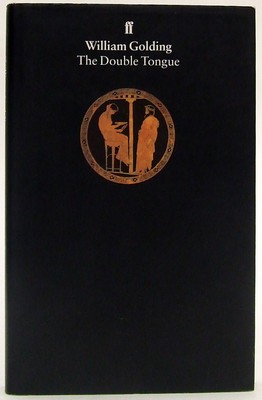‘Groups of travellers who come to see our – your – sights. I’m afraid they keep the economy alive, but you can’t expect them to do so in winter months. I dare say, though, we may see the first gorgeous butterfly of spring in a month, there are always a few early ones.’
It took me a long time to understand that by ‘spring butterflies’ he meant tourists, these quaint travellers who want to ‘see the world’, as it is expressed. The general route was through the Peloponnesus to Athens, then back to Corinth and across our ferry. It was thus, and with still most of the month to go before the solstice, that I saw my first Roman. There was a small crowd of Delphians who seemed to be following very slowly an even smaller group of men. Ionides held me back until they had passed and muttered the word Roman’ in my shrouded ear. The Roman looked very mild and not at all threatening. He was wearing a most complex robe of white linen with a purple stripe running through it for a border. He worde no jewellery round his neck and was as clean schaven as a young man, though clearly he was quite an old one. He had close-cropped thatch of iron-grey hair. His only ornament was a gold seal ring. A Delphian priest of Zeus was speaking very slowly to him in a strange language.
‘Latin,’ siad Ionides. ‘A language with too much grammar and no literature.’
‘The Double Tongue’ (1995) is een roman van William Golding. Het werd na zijn dood in een kladversie teruggevonden en postuum gepubliceerd. Goldings laatste roman vertelt het verhaal van de Pythia, de priesteres van Apollo in Delphi. Het verhaal speelt zich af in de eerste eeuw v.Chr., net vóór de Romeinen Griekenland helemaal inpalmden. Het hoofdpersonage is Arieka, een lelijk en onconventioneel meisje, dat een bron van grote schande is voor haar ouders, die vrezen dat ze haar nooit zullen kunnen uithuwelijken. Maar ze wordt gered door Ionides, de hogepriester van de Delphische tempel, die iets van een ziener (en een vriend) in haar ziet en haar meeneemt naar het heiligdom om de nieuwe Pythia te worden – de aardse stem van de god Apollo.

